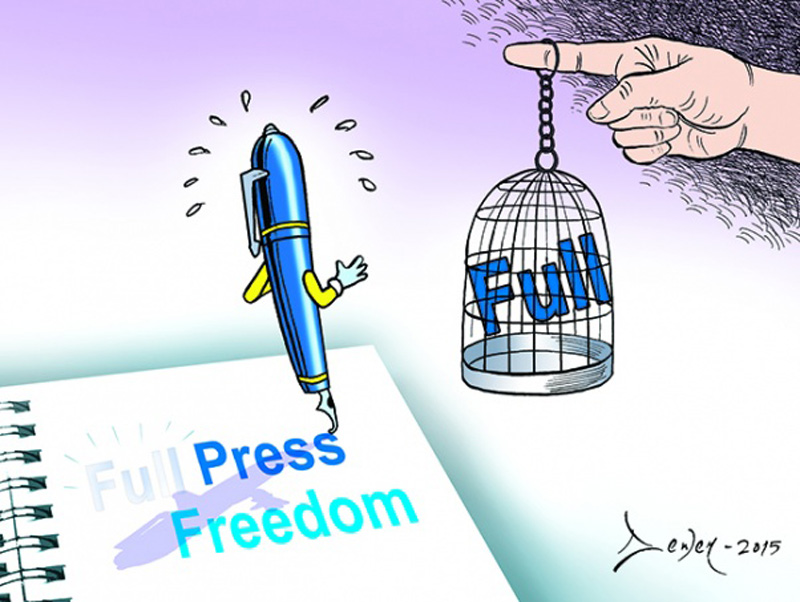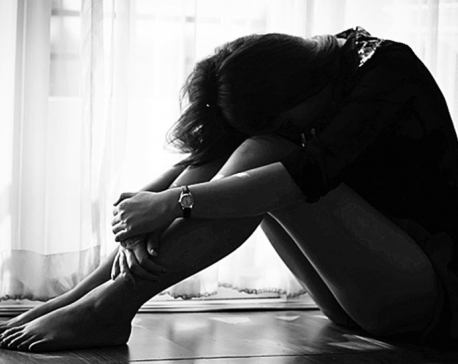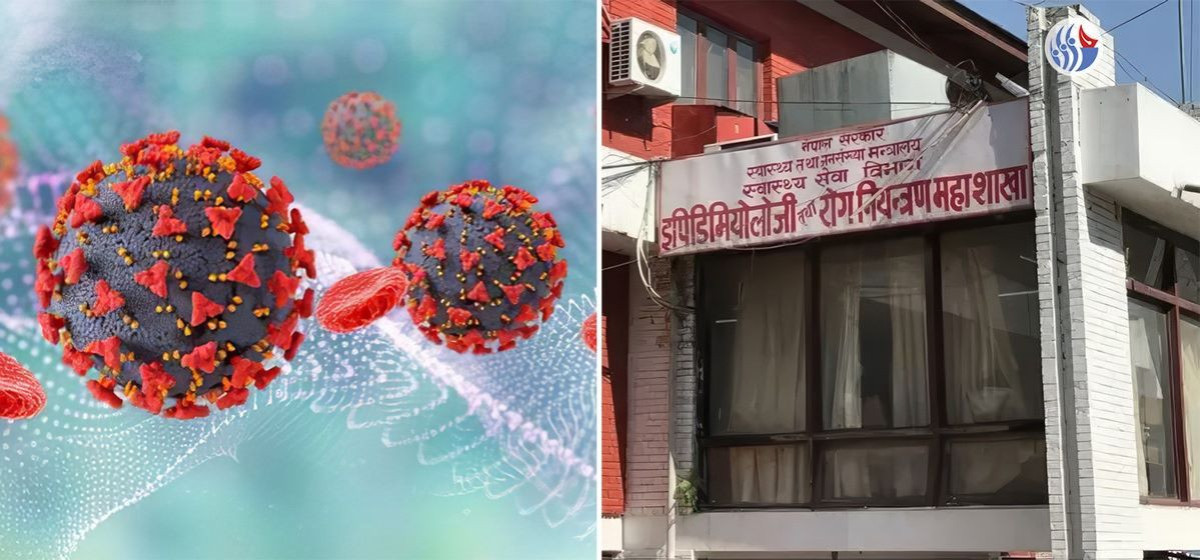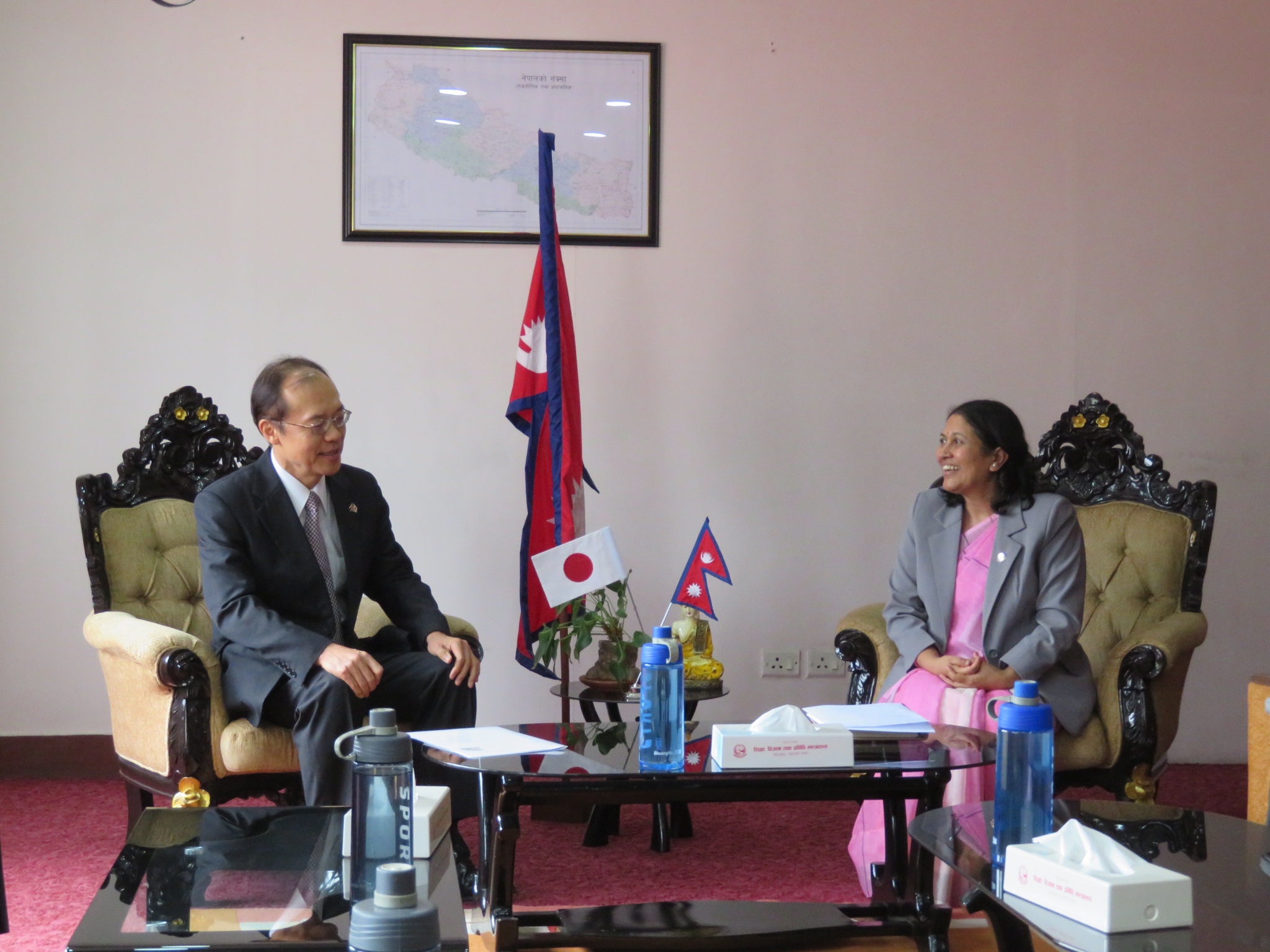
OR

More from Author
Even after a decade of end of armed conflict many journalists still feel insecure and are forced to practice self-censorship
Nepali media in the past two decades has been forced into self-censorship by various political interest groups. Nepali journalists have been intimated, attacked and some have even been murdered. This has weakened the media’s role of a watchdog over the wrongdoing of state agencies, especially concerning abuse of power and human rights violations.
The media continues to be controlled in one way or the other even after a decade of the end of the armed conflict. The country has since adopted federal republic system of government with constitutional guarantee for free media and protection of human rights.
And yet the international media rights bodies have placed Nepal in the Global Impunity Index for its failure to address cases of violation of press freedom.
There is a serious concern with regard to freedom of expression, as journalists are practicing self-censorship. Successive governments have time and again expressed their commitment to international laws and instruments on journalist safety, and yet Nepali journalists continue to work in unsafe conditions, particularly women journalists who routinely have to deal with sexual harassment and even physical violence.
It is true that post-conflict, freedom of expression and safety of journalists has somewhat improved. Nepal for instance now has comparatively media friendly laws, with the exception of its rather harsh regulation on online journalism. However, many journalists still feel insecure and are forced to practice self-censorship.
It would not be wrong to say that journalists have lost trust in state agencies, including criminal and civil justice systems. National and international stakeholders have also raised the issue of physical and professional safety of journalists. But we have failed to come up with common understanding on the issue and a national strategy to make state agencies responsive in such cases has yet to emerge. The government and political actors have failed in their responsibility of booking the perpetrators of crimes against journalists.
The United Nations had introduced UN Plan on Safety of Journalists (2013 to 2016) in Nepal, with the focus on sensitizing Nepal’s state agencies, particularly security organs and the judiciary, on impunity in crimes against journalists. Major stakeholders like the National Human Rights Commission (NHRC) and the Federation of Nepalese Journalists (FNJ) had subsequently agreed to establish a national mechanism for protection of freedom of expression and safety of journalists. And yet nothing has come of the plan yet.
Nepal has failed in its commitment to report on attacks on journalists to appropriate UN agencies. The UN had urged Nepal to inform the Director General of UNESCO about actions taken to prevent impunity and to notify on the status of judicial inquiries on killing of journalists. This has not happened. In 2013, Nepal was one of the 57 countries requested to submit such information. In 2014, Nepal was one of the 59 countries requested to report incidents of violation of press freedom from the time between January 1, 2006 and December 31, 2013.
On the status of judicial inquiries on journalists killed during this period, the report even mentions the names of seven Nepali journalists, putting them under ‘no information received’ status. This suggests Nepal has not informed UNESCO even about the cases that are already under judicial investigation. By failing to report to such requests on time, Nepal has demonstrated lack of leadership and accountability to international bodies.
Government actors and our political class are responsible for ending impunity on crimes against journalists. Nepal must thus speed up investigations and prosecute those involved in grave crimes against journalists. A lot more also needs to be done to protect Nepali journalists and to provide them and their families with compensations when appropriate.
The author, a media rights advocate, is the chairperson of Media Action Nepal
laxmankasyap@gmail.com
You May Like This

5 things that make men feel insecure in a relationship
It's not uncommon for partners to feel insecure in a relationship. However, most people are unaware of their insecurities. ... Read More...

11 murders in Sunsari in four months
ITAHARI, Dec 2: Sunsari district witnessed 11 murders in four months as people have started feeling insecure due to killers... Read More...

Why are girls not safe?
Starting from the mother’s womb, girl is insecure before she is born Ready to step on this world, but her... Read More...











Just In
- Nepal at high risk of Chandipura virus
- Japanese envoy calls on Minister Bhattarai, discusses further enhancing exchange through education between Japan and Nepal
- Heavy rainfall likely in Bagmati and Sudurpaschim provinces
- Bangladesh protest leaders taken from hospital by police
- Challenges Confronting the New Coalition
- NRB introduces cautiously flexible measures to address ongoing slowdown in various economic sectors
- Forced Covid-19 cremations: is it too late for redemption?
- NRB to provide collateral-free loans to foreign employment seekers








Leave A Comment